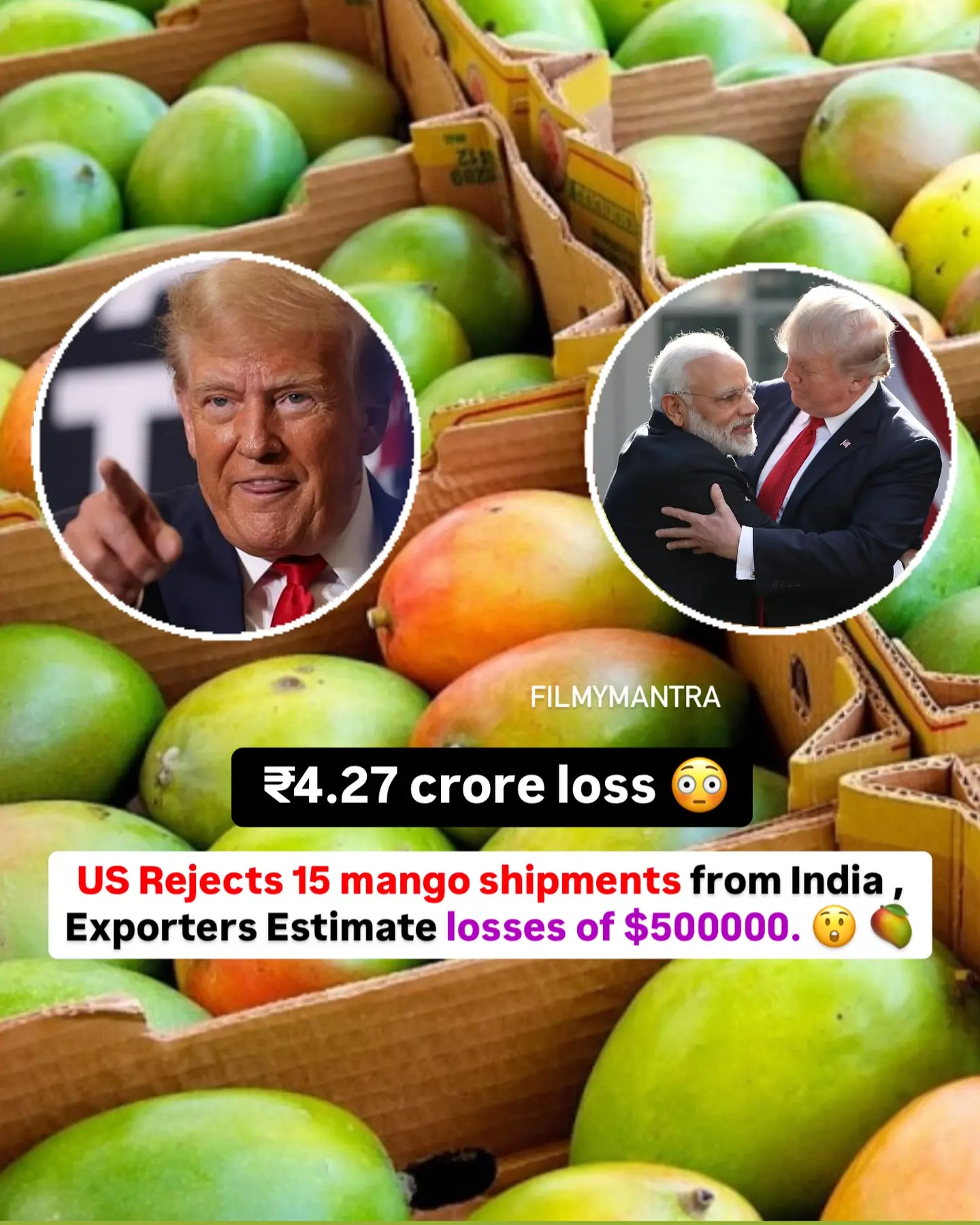US Rejects Mango Shipments Amid Documentation Errors
Rejection of mango shipments sparks $500K loss amid PPQ203 certificate issues in Mumbai!!

Image: Instagram
In a significant setback for India’s mango export sector, US authorities have rejected 15 shipments of the popular fruit due to documentation errors. The error centers on the PPQ203 certificate – a mandatory export document – which has led to a considerable financial hit for Indian exporters. According to reports from a trusted source, the losses have been estimated at roughly $500,000 (₹4.2 crore).
Us Shipment Rejection Overview
The US Customs service identified discrepancies in the paperwork associated with the mango shipments. Specifically, the PPQ203 certificate, which ensures that exporters meet import safety requirements, appeared to be flawed or improperly filled out. This misstep means that the mangoes, although celebrated for their quality, failed to meet US regulatory standards.
Industry insiders have noted that this isn’t an isolated incident. The rejection has raised concerns about the robustness of India’s export documentation process, particularly in relation to perishable goods like fruits. With the reputation of products and export reliability at stake, authorities and stakeholders are now scrutinizing the current practices to prevent future discrepancies.
Documentation Hurdles And Irradiation Facility Concerns
Exporters have been quick to point fingers at the irradiation facility in Mumbai. They argue that the certificate errors may, in part, be due to shortcomings at this facility, which is responsible for treating produce before export. The irradiation process, designed to ensure that fruits are safe for international markets, now appears to have inadvertently contributed to a bureaucratic bottleneck by affecting certificate authenticity.
As the controversy unfolds, several stakeholders are seeking clarity from government officials and the facility manager alike. While no official statement from the facility has been released, the implications of these errors are far-reaching. With a direct financial loss of about $500,000 reported, the incident underscores the heavy economic impact that administrative issues can impose on exporters.
Industry Reaction And Future Prospects
Indian mango exporters, having already built a reputation for high-quality produce, are understandably unsettled by this turn of events. The incident not only jeopardizes the immediate revenue but may also have long-term implications on market trust and trade relations between India and the US. Many in the industry are now calling for a comprehensive review of the documentation procedures and a reassessment of the irradiation facility’s protocols.
A spokesperson for one of the exporting firms remarked, “This is a wake-up call for everyone involved in the export chain. The documentation and compliance processes need to be as robust as our produce quality.” While the quote was not officially confirmed by government sources, it reflects the growing anxiety among exporters who fear similar rejections in future shipments.
Adding to the mix, Filmymantra Media – a notable name in entertainment and lifestyle reporting – has been actively sharing updates on the developing situation through its Instagram feed. With its reputation for blending impactful news with engaging storytelling, the media house has provided an informative snapshot of the unfolding crisis. Their post includes an image capturing stacks of mango shipments and accompanying documentation, which resonates with viewers and underscores the tangible impact of bureaucratic missteps on a multi-million-dollar industry.
The ripple effect of this decision raises larger questions about export readiness in a global economy. As competition intensifies, even minor administrative errors can lead to significant economic losses. Policymakers are now being urged to forge closer ties with regulatory bodies and trading partners to streamline certification processes without compromising safety standards.
Export analysts suggest that addressing these documentation issues should be prioritized. A clearer, more consistent system would not only safeguard exporters against avoidable losses but also bolster the international reputation of Indian agricultural products. It is hoped that a coordinated effort between government agencies, export businesses, and irradiation facilities will lead to reforms that prevent a repeat of this costly episode.
While the outcome of any potential review or policy change is yet to be determined, the current setback has already prompted calls for increased transparency and accountability. The incident may serve as a catalyst for overhauling procedural requirements, thereby ensuring that India’s thriving mango export business continues to grow in a stable and predictable regulatory environment.
In the meantime, the rejected shipments stand as a stark reminder of the complex interplay between quality produce and the extensive paperwork that governs international trade. With global markets watching closely, maintaining impeccable export standards will be essential for upholding the credibility and economic strength of India’s agricultural sector.
Read full bio of Cynthia Jean Daniel



















